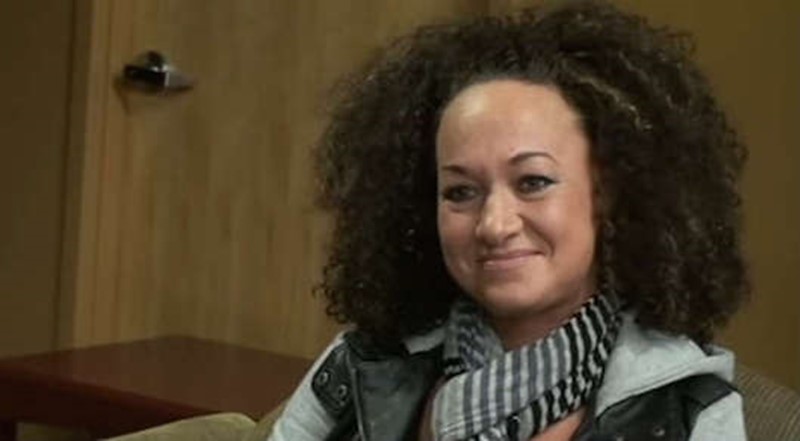
Rachel Dolezal—the white lady from Spokane, Washington, who has for the past ten years, been representing her self as black. It has been all over the news, talk shows and social media.
That would not have independently garnered much attention had it not been for the fact that Ms Dolezal, the lily-white, blonde with Swedish, German and Czech heritage, had been elected president of a chapter of the local NAACP. Yes, she changed her style, her dress, the way she speaks, and she bamboozled a whole load of people including the National Association for the Advancement of those very people she bamboozled.
Do I care?
No. Not really.
Should I care?
Well, that is the question I have been asking myself since I first read the story. Does a white woman, pretending to be black in an era where racism seems to be manifesting itself more and more blatantly, represent a larger issue that I should be concerned about? Is it systemic of a more profound racial or societal concern? And if it is, am I that far removed that I cannot see how this is relevant to me individually, the black community in general, and on race relations in American as a whole?
The truth is, I see this as nothing more than what I see on the surface. Nothing profound. Nothing systemic. Nothing more than a white woman in the Pacific Northwest who felt, for whatever reason, to identify herself as black. To represent herself as black. To identify as an African American, who owned the African American experience (whatever that is). I personally don’t care, nor do I think that I should.
Does the fact that she bamboozled the NAACP makes it anymore relevant? Not to me. I know of nothing that says that she has to be black to be part of, or even be president of the NAACP. White people after all, formed the organization. I am not sure how relevant they are today in the advancement a group of people who no longer (if ever) refer themselves as colored. In any case the only thing that happened was the embarrassment to the people who were fooled by how this woman presented herself.
Could she have done the same work of civil rights champion and community organizer as a white person? I don’t see why not. It has been my experience that injustice towards black people becomes relevant to the establishment only after being championed or cosigned by a white person. Otherwise it becomes just another black person complaining. So, to the question of whether she gained an advantage by identifying as black, I would say that not in this case. Being black was a personal choice which might have given her an "in" with the NAACP. but not much else.
The question of whether this compares in some way to the issues of racial equity, racial disparity, or racism in America is ridiculous to say the least. One white woman with racial identity issues in no way approximates the systemic racism that is now being revealed in our criminal justice system by emerging social networking technology. To suggest such is simply reaching too far for a connection and therefore trivializing the real issue, which might just be the strategy of some.
Maybe the Bruce Jenner drama has caused the entertainment media to draw comparison to the gender-identity thing (whatever it is). The terms “identifying as black” and “trans-racial” are being bandied about as if they are something or anything more than something made up to justify a person living a lie. They somehow equate these to “identifying as a woman” or “trans-gender.” All I see is personal individual choices. Bruce Jenner got the attention he craved as well as the gender reassignment he wanted. Rachel got to dress up and play the black girl for as long as she could get away with it. I am not sure what roads Bruce Jenner paved for the LGBT community. And I don’t see what gains were undone in the black community by Rachel playing the black girl. Once again—a non-starter for me. The only difference for me is that I do have an issue with the struggles of black people being constantly compared and equated to that of the LGBT community. I would admit that there are similarities, however there are just not enough for the equation.
Then, there is the question of the social network response. The most popular question being asked; why do black women get a pass for straightening their hair, wearing weaves, and wigs, bleaching their skins, in an attempt to change their images but yet we are making a big deal about this white woman darkening her skin, kinking her hair, and pretending to be black.
For me the answer is simple…I do not give these black woman a pass. I don’t like weaves or all the fake stuff on my woman. Personal choice.
But seriously, the truth is that these weave-wearing, skin-toning black women, while perpetuating the white image of beauty, are not trying to pass as white, but are simply mimicking an image passed down to them generationally as the epitome of human beauty. Nobody is going to mistake them as white.
Rachel on the other hand had the best of both worlds. She set out to pass for black and she did. And then when she wants to enjoy the privilege that her whiteness affords her she could simply remove the make-up, un-kink her hair, and, oh yeah…sue a potential employer for turning her down for a job because she wasn’t black. No. That argument is not flying with me.
That leaves the accusations of black-face.
Definition: A form of theatrical makeup used by performers to represent a black person. The practice gained popularity during the 19th century and contributed to the proliferation of stereotypes such as the "happy-go-lucky darky on the plantation" or the "dandified coon".
The idea being thrown around in the media is that Rachel is racist and performed a sort of real life blackface. I think that this idea is without merit, and again a reach by baiters who try to see a racist behind every head of blonde hair. I’m not buying it. I haven’t heard any evidence of this woman perpetuating any of the exaggerated black stereotypes. That is about as much credence I’m giving that suggestion until I have evidence to the contrary.
So to restate my original question—Do I care?
No, I do not. All I see here is a white woman who wants to be black. She could have enjoyed most of the black experience without trying to convince people that she was actually black. But is it relevant in the grand scheme of things? Not to me. Maybe a little bit of egg on the face of the NAACP. But they need some egg on their face for that silly, outdated name they gave their organization. But that’s it in my humble opinion.
It is merely a case of, once you go black you can go back. Rachel Dolezal is just a white woman who went black and can’t find her way back. Even when she has been outed.
I really don’t care. Which begs my final question…
Why did I even spend all this time writing on this topic if it bares no relevance or importance for me?
Note: Theo Semper is an Associate Editor with MNI Alive Media


